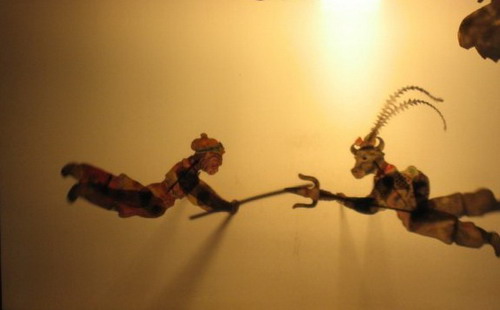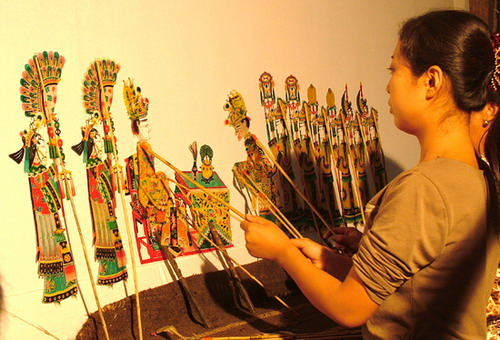| About Hubei | Culture & Arts | ||
| Attractions | Routes | ||
| Dining | Shopping | ||
| Hotels | Transportation | ||
| Entertainment | Travel agencies |
Jingshan to attract Wuhan tourists
Storytelling queen
For the love of Wuhan
Dangyang to promote tourism


Shadow play, Hubei intangible cultural heritage
(english.cnhubei.com)
Updated: 2011-11-18
 |
|
It entered the first group of China’s intangible cultural heritage protection list in June 2006. |
 |
|
A white screen, a flame, some music and a few flat puppets that move and tell a story compose shadow play. |
Shadow play is composed by a white screen, a flame, some music and a few flat puppets that move and tell a story. It is a traditional Chinese folk art with a history of more than 2,000 years.
Shadow play of Qianjiang city of Central China’s Hubei province was listed into the first group of China’s intangible cultural heritage protection list in June 2006, but local reports said that shadow play was on the edge of distinction because of shrinking audience and market demands.
Generally speaking, Chinese ancient art forms gradually faded out of the limelight with the arrival of modern media such as television and movies.
Despite the situation, Qianjiang has taken many measures to protect and rescue shadwo play.
Intangible cultural heritage is defined by the United Nations Educational, Scientific and Cultural Organization (UNESCO) as "the practices, representations, and expressions, as well as the associated knowledge and the necessary skills, that communities, groups and, in some cases, individuals recognize as part of their cultural heritage."